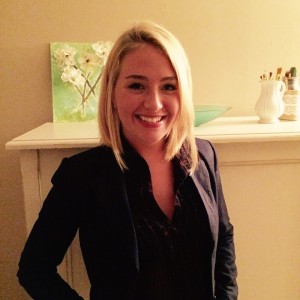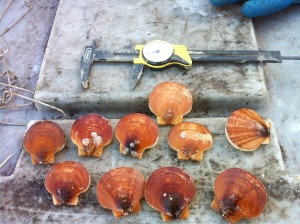I am not a mad scientist, though sometimes science makes me mad. Every day we are bombarded with terrible statistics that show how modern culture, in one way or another, is destroying the environment. We have plastic greed, oiled hearts, radioactive smiles and bumper stickers that read, “Go Green.” So, for a while I questioned if there was ever a way to be “green” while still enjoying the conveniences of our modern culture.
The following are the FIVE fundamental lessons I believe to be most important for beginning that journey…but before I get to that…
Let’s talk shopping! No, seriously. Entering a store can be overwhelming and knowing which product to purchase is trés difficile. DO NOT support the ill conscience of a company. Do a little research on labels and companies you are partial to. It will only take a few minutes and it is going inside/on your body so I’d say it’s worth the time. Ok, now time for the lessons!
Lesson 1: Short and simple: read! Where is your food coming from? Pick the local option. This not only supports local business but reduces travel emissions. And don’t forget local beers and wines! They can be hidden treasures (if you’re legal). Next, what are the ingredients? If you can pronounce them all and have an idea of what they are, that’s a great start. If the label states “NON-GMO,” then it’s a go! And please remember to not waste your waste. Recycle EVERYTHING, including the carton your non-gmo vegan butter spread came in–and–your food waste as well. Toss it into a compost pile. If you go out to eat, bring home all your restaurant leftovers. If possible, I wrap mine in a napkin rather than the plastic carton; this way everything, napkin and all, goes into the pile. It’s simple and easy to make a compost pile and wonderful to watch as your waste gives back to you in a few short months.
A quick potty-training story. I’m not really interested in your bowel movements but rather, how you clean up the mess. Warning: Do not attempt with strangers. Growing up, my closest friend would always use TOO much toilet paper. Every time she “went,” she would wrap her hand up like a snowman and then proceed. It drove me insane. I would tell her to use less and she would tell me to mind my own business. Yes, I understand I was being a little intrusive, but I’d just have to get tactful. When she would run out of paper, I would ration her the amount I felt appropriate. Now, she uses significantly less. If it is the result of my clever ways, I’ll never know, but at least I got her thinking about it. These days, I follow my fiancée around when he washes the dishes or brushes his teeth. I’m like a little water troll in our house which leads us to our second lesson.
Lesson 2: Use less. Use less water while doing the dishes, brushing your teeth, washing your face and taking a shower. I absolutely understand the allure of long, steamy showers and splashing your face with too much water like they do in the movies–how they keep all the water in the sink, I’ll never know–but let’s be practical, keep the tap on a low flow. And just like toilet paper, don’t use so many tissues, or an excessive amount of paper towels. Invest in cloth rags, or better yet, recycle your ex’s T-shirts.
Alright, before we wrap this up, it’s time we talk about bags. Get it?
Lesson 3: Use them more than once! Bags don’t immediately become infectious once they are used. Clear them out and use them again. Sometimes it is inevitable that the things we purchase will come in, or with, a bag. Make the best of it. A bag’s usage span tends to be 15 minutes before it hits the landfill or the ocean, where it will sit for more than 20 years. Until plastic bags are banned or companies like Ziploc invest in eco-friendly plastics [which already exist] do your best to wean off their disposable convenience. ALSO you will not be a crazy bag lady/man by saving every plastic bag you get because you “forgot” your reusable one, just keep them in the car. I typically save the plastic bags until I have a trunk full and then bring them to the nearest store that offers a recycling program.
Lesson 4: Leave no trace. Upon leaving a room, turn off the lights. Unplug your computer. Unplug the charger. Turn down the heat. These are simple and once you get the hang of it, it becomes habitual and saves your electric bill as well as our air.
Now, we all know that feeling when we’ve met someone who believes climate change isn’t an important issue. Or, that fighting for the Earth is a moot point. Sometimes, I pretend I am whacking sense into them with my yoga mat. But to avoid being a bully, I’ve learned a discussion with someone who doesn’t quite see eye-to-eye is a more plausible approach. Yelling will get you nowhere.
And that brings me to the mighty,
Lesson Five: Speak with confidence and grace. Do not yell. People don’t respond well to yelling…think about it: Do you? Instead, arm yourself with knowledge and fire with clarity. Everyone has their own cause to live for. They may not always parallel our own, but that is okay. As long as you act with your heart and soul you have a better chance of reaching theirs. The most wonderful and powerful thing we can do is use organized thought to teach someone about our role in our environment.
P.S. Don’t discuss the environment at a bar. It’s just like talking religion or politics.
From the environmental novice to the advanced eco-activist, making a difference begins with these five steps. Though this discussion could go on infinitely, this is a blog. And the modern reader wants to keep things short and sweet. So keep it classy, keep it sexy, and most importantly, keep it green!
By Melanie Magdits
Sustainability Studies Program ’13
Environmental Humanities Major
Today, Melanie is pursuing her MBA in Sustainability and Environmental Compliance at Southern New Hampshire University.






